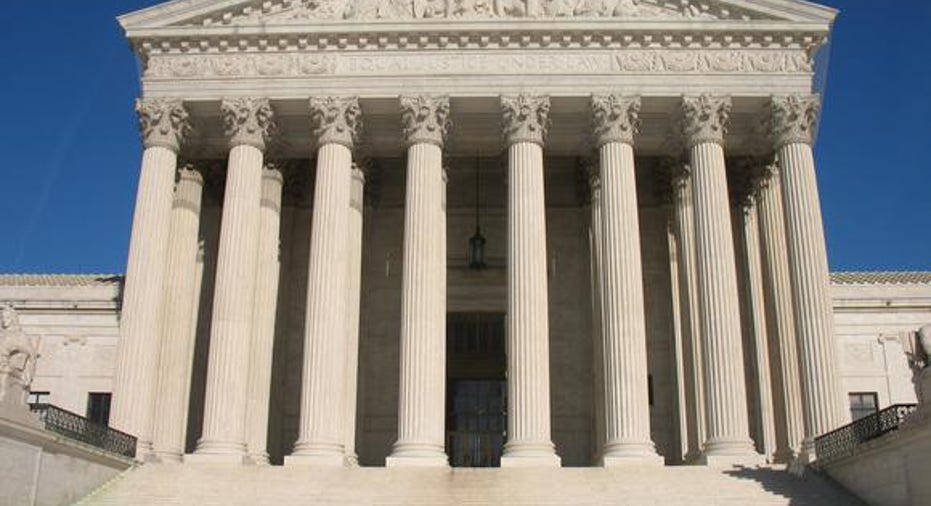Trump’s Supreme Court Front-Runners on Guns, Immigration & Healthcare

President Donald Trump is set to announce his nominee for the U.S. Supreme Court Tuesday night.
Since the death of Justice Antonin Scalia last February, the high court has been left ideologically divided, with four conservative and four liberal-leaning justices.
Trump, who previously released a list of 21 potential conservative judges to fill the vacancy, has reportedly whittled that list down to two federal appeals court judges: Judge Thomas Hardiman and Judge Neil Gorsuch. Here is a closer look at how the two potential picks have weighed in on issues such as immigration, gun rights and employer rights under the Affordable Care Act.
Judge Thomas Hardiman: The Law and Order Nominee
Hardiman, 51, was appointed by President George W. Bush to serve as a judge on the U.S. Court of Appeals for the Third Circuit in Philadelphia. He has widely established himself as a law and order judge, continually demonstrating “his strong defense of the right to keep and bear arms,” Ilya Shapiro, senior fellow in constitutional studies at the Cato Institute, told FOX Business.
Hardiman has an expansive view of the second amendment, believing the right to bear arms extends outside the home. In an opinion he wrote disagreeing with a New Jersey law that requires people to show “justifiable need” to be armed outside the home, Hardiman was alone in his opposition, expressing the view that the need for self-defense exists beyond the confines of the household. In a separate case, he held that even violent felons could regain their second amendment rights so long as they met certain conditions.
In addition, Hardiman notably ruled in favor of a New Jersey prison’s strip-search policy, believing the need for security trumps potential inmates’ rights to privacy.
While there have been questions raised by conservatives about Hardiman’s views on immigration due to some legal work he did for a clinic called Ayuda early in his career--- when he helped poor, Spanish-speaking immigrants in political asylum and domestic abuse cases--- he has also written unpublished opinions against non-citizens.
“I don't believe there's much in Hardiman's record to fully gauge him [on immigration]. Ayuda cuts both ways. It could help politically due to the concerns that Trump is anti-immigration,” Philip Holloway, legal analyst at the Holloway Law Group, told FOX Business.
Democratic Minority Leader Senator Chuck Schumer has vowed to keep Scalia’s seat open indefinitely if Trump’s nominee is “not bipartisan and mainstream,” but Hardiman may breeze through the confirmation process if history is any indication, said Shapiro.
“He brings no ideological agenda to his tasks and so may be less like Scalia in that respect. He also was confirmed unanimously [to the District Court] and should face no significant opposition.”
Judge Neil Gorsuch: The Defender of Small Government
Gorsuch was appointed to the 10th Circuit Court of Appeals by President George W. Bush. At 49 years old, Gorsuch would be the youngest Supreme Court Justice on the court in 25 years.
Similar to Scalia, Gorsuch is considered an originialist, meaning he believes decisions should be based on a strict interpretation of the Constitution, as it was originally written.
“[Gorsuch] has a well thought out conception of Constitutional interpretation and the way that structure protects liberty. He’s most known for his opinions supporting religious liberty and pushing back on the administrative state,” Shapiro said.
When it comes to the administrative state, Gorsuch is a proponent of small government. He is skeptical of doling out authority to bureaucratic agencies and allowing them to interpret the law.
“He favors states’ rights and limited federal government and strict separation of powers,” lawyer Wendy Murphy told FOX Business.
Murphy said this could be bad news for Trump’s executive order authority because “such an ideology disfavors executive orders.”
Gorsuch is also a defender of religious liberty. In a well-known case, Hobby Lobby Stores Inc. v. Sebelius, Judge Gorsuch ruled against the Affordable Care Act’s contraceptive mandate, which requires private employers to provide employees with insurance to cover contraceptive costs. The companies in question claimed it violated their religious beliefs, and Gorsuch sided with the private companies and their rights to religious liberty.
Like Hardiman, Gorsuch may not ruffle many Democratic feathers during the confirmation process.
“He was confirmed unanimously to the 10th Circuit and should not face significant opposition,” said Shapiro.



















